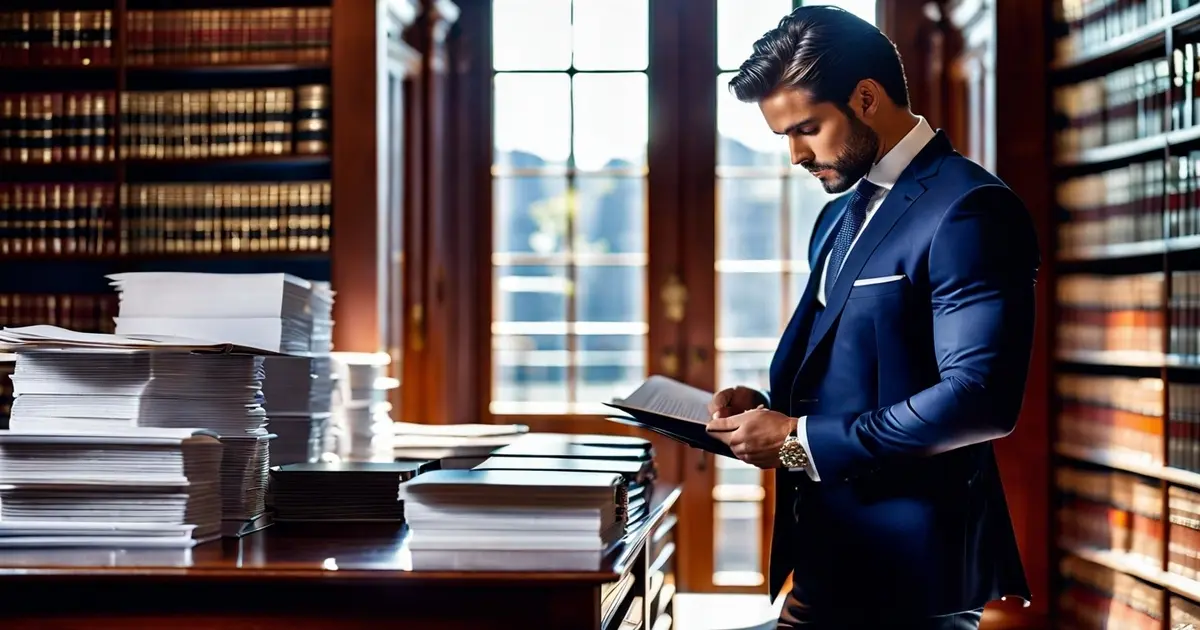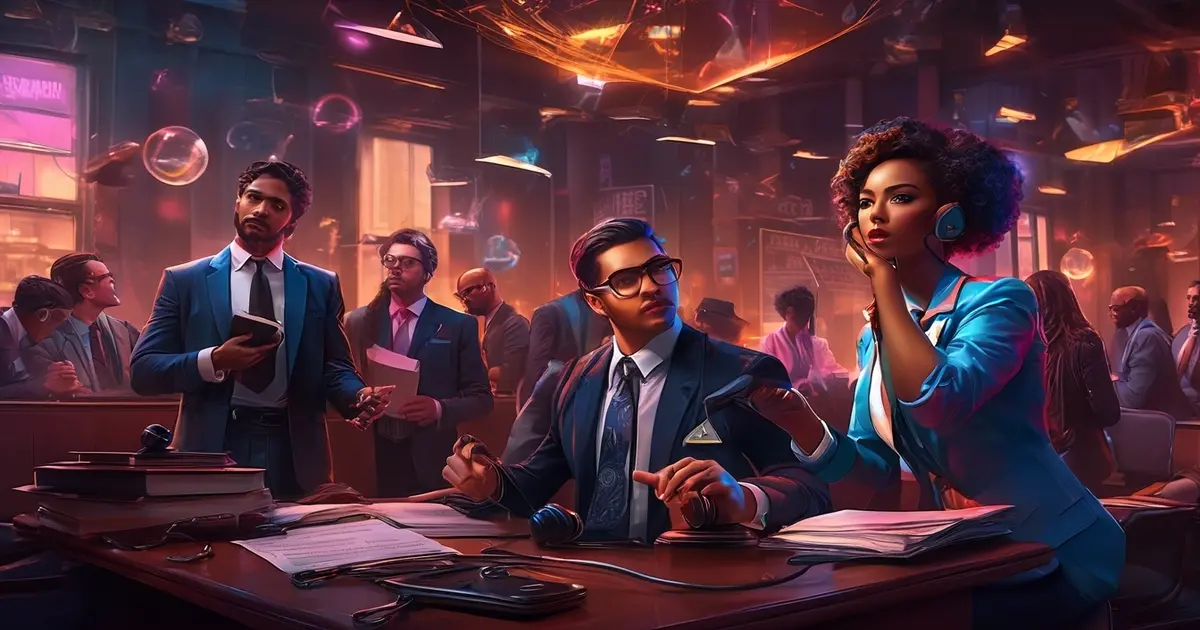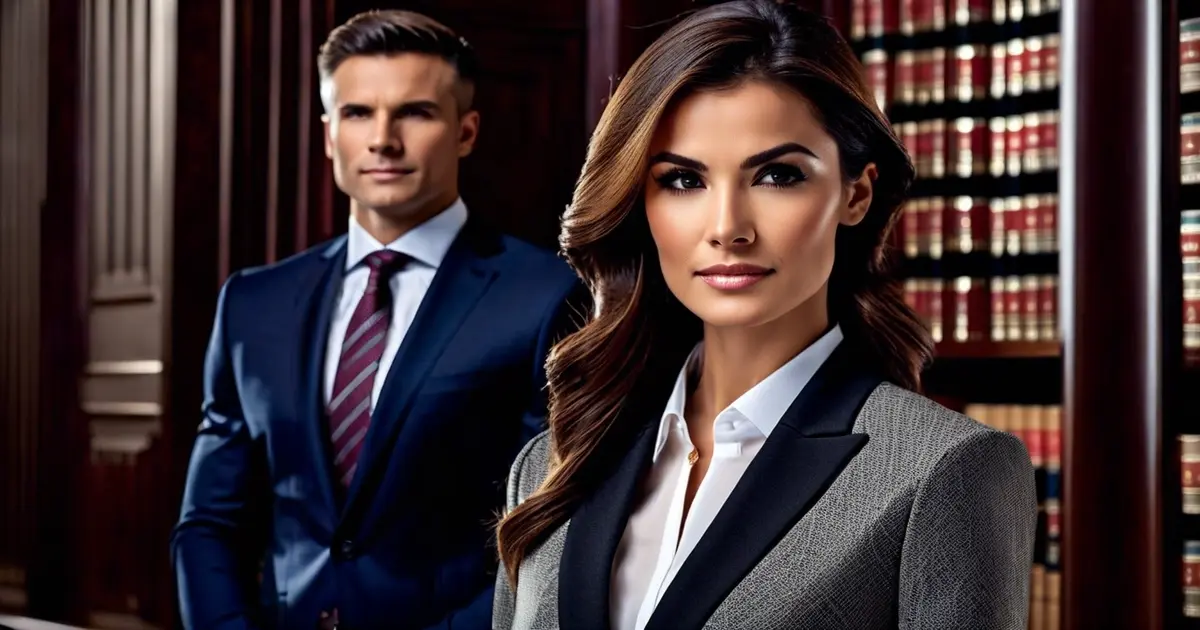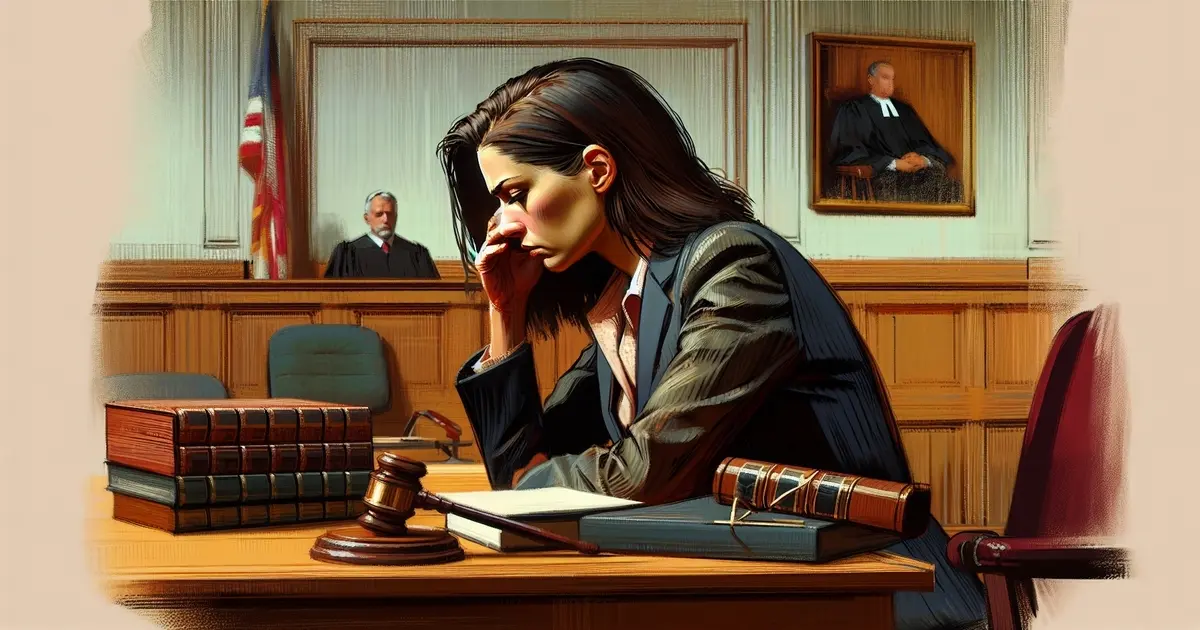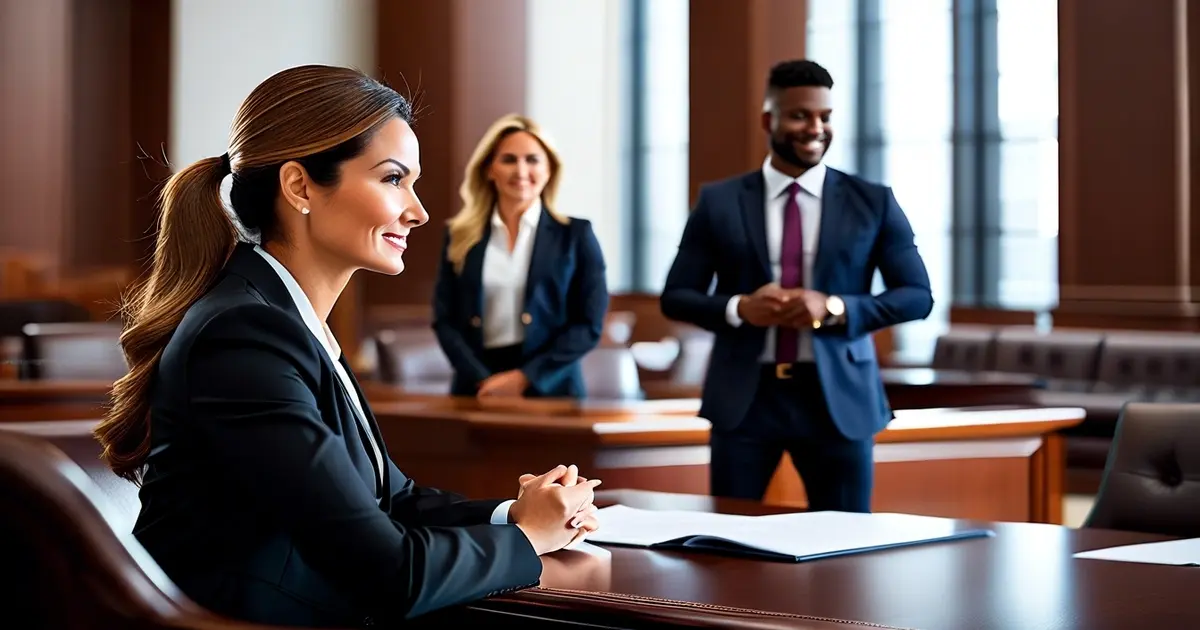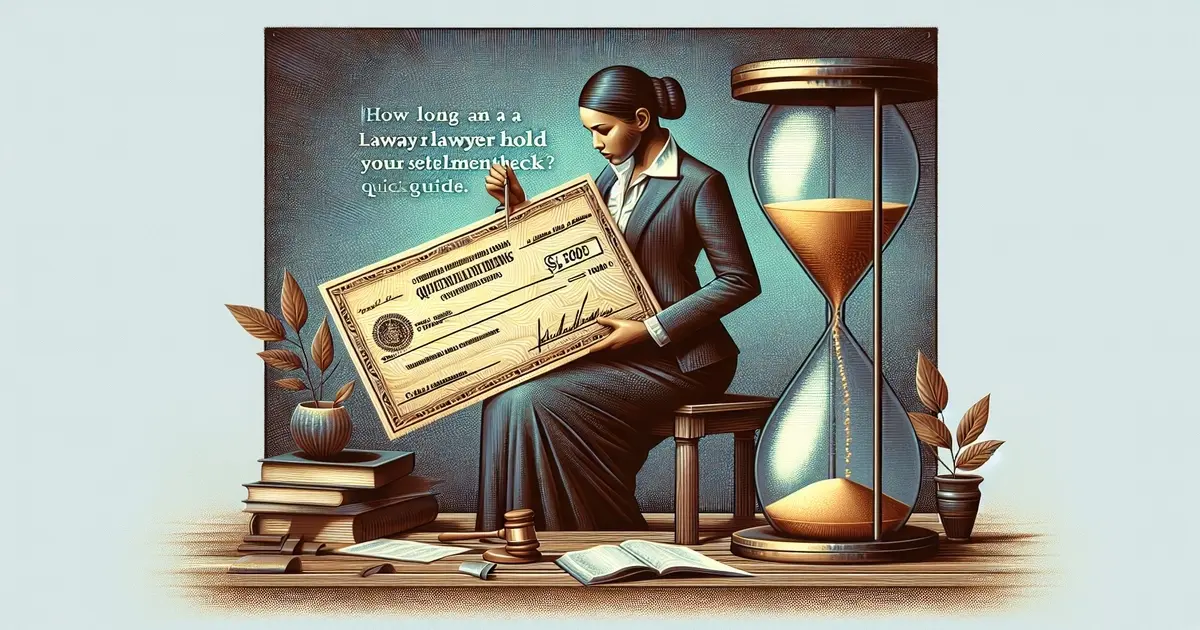What Can Lawyers Find Out About You? Unveiling Legal Searches
Believe it or not, 95% of your digital footprint is accessible to savvy lawyers with the right tools. It's like handing people a magnifying glass to scrutinize every corner of your online presence for an answer, something year-round. From those late-night tweets you thought were harmless to the public, records you didn't even know were out there—lawyers can unearth a treasure trove of information about you without breaking a sweat.
This isn't just about legal cases; it's about understanding the power of information in today's digital age and how people can use it for better or worse. So, let's dive into what layers of your personal life are up for grabs and how this knowledge could impact you.
Table Of Contents
The Scope of Information Lawyers Can Access
Public Records
Lawyers often start with public records. These are documents and information available to anyone. They include court records, marriage licenses, and business registrations.
Public records give lawyers a base for their research. They can learn about your legal history or any businesses you own. This is crucial in cases where past behaviors or affiliations matter.
Private Data
Accessing private data requires more effort. Lawyers must have proper authorization to dig into these details. This might involve court orders or consent from the person concerned.
Private data encompasses emails, text messages, and personal documents. In legal battles, such information can prove pivotal. It offers insights into personal dealings that public records cannot show.
Social Media Insights
Social media platforms are gold mines of information for lawyers. Your posts, likes, and friends list can reveal much about your lifestyle and preferences.
Lawyers scrutinize social media interactions for inconsistencies in statements made elsewhere. For example, claiming injury in an accident but posting pictures hiking could undermine your case. This aspect shows how our online activities can become evidence against us.
Financial Footprints
Financial transactions provide a clear picture of someone's life. Lawyers access bank statements and credit reports with authorization. These documents reveal spending habits, debts, and asset ownership. In divorces or fraud cases, such information is invaluable.
Property ownership records are also accessible through public databases. They show real estate owned by individuals across different locations.
The scope of what lawyers can find out about you extends far beyond simple Google searches to include:
- Publicly available documentation
- Privately held communications (with appropriate permissions)
- Detailed financial profiles
- Online social interactions
All these elements combined give a comprehensive overview of an individual's professional and personal life from various angles.
Understanding the breadth of information accessible to legal professionals underscores the importance of being mindful of what we share publicly and privately.
Lawyers' Use of Social Media in Legal Cases
Social Media Scrutiny
Lawyers often dive deep into social media to find evidence. They look for posts that show misconduct or contradict statements made elsewhere. This can include photos, videos, and comments.
Social media platforms hold vast amounts of information about people. Everything from your location at a particular time to who you interact with is available. Lawyers use this data to build or dismantle cases.
Interaction Tracking
The connections and interactions on social media are gold mines for lawyers. They reveal relationships and behaviors relevant to legal matters. For instance, messages exchanged can prove pivotal in court.
Tracking these interactions is about more than just what's visible publicly. Lawyers also look at group memberships and event attendances linked to the case.
Digital Forensics
Deleted only sometimes means gone in the digital world. Experts in digital forensics can recover past posts that users have removed or hidden over the years. These findings can drastically impact the outcome of a case.
The process involves sophisticated software that sifts through digital footprints left behind by deleted content. This shows the importance of being mindful of what one shares online, as it could resurface years later during legal disputes.

Legal Implications of Social Media Posts
Evidence of Character
Social media platforms have become a treasure trove for lawyers looking to understand more about an individual. Your posts, likes, and comments can reveal much about your personality and intentions. Lawyers often sift through this digital footprint to construct character profiles or demonstrate intent in legal cases.
For instance, if someone frequently shares aggressive content or makes threatening remarks online, these actions could be used to establish a pattern of behavior in court. This is particularly relevant in cases involving harassment or threats. It's crucial to remember that what you share online isn't just seen by friends but could also be scrutinized by legal professionals.
Location Verification
Another critical aspect lawyers can uncover from your social media is your location at specific times. Many posts are time-stamped and may include geotags or check-ins at various places. This information can prove vital in legal proceedings where establishing someone's whereabouts at a given time is necessary.
Imagine being accused of being somewhere you weren't; your social media might provide the alibi to clear your name. Conversely, it could also place you at the scene of an incident if you need to be more careful with privacy settings and sharing habits.
Privacy Settings Myth
Many people believe their privacy settings shield them from unwanted scrutiny. However, this is only partially true. While these settings might prevent the general public from viewing your profile contents directly, they do not make your information invisible during legal examinations.
Lawyers can request access to private accounts for discovery processes in lawsuits or criminal investigations. Once granted permission by a court order, even those "private" messages and posts become accessible evidence that could influence the outcome of a case.
- Your privacy settings cannot fully protect you.
- Legal authorities can gain access with proper authorization.
Social Media's Role in Various Legal Cases
Jury Selection
Social media accounts can reveal a lot about us. Lawyers use this to their advantage during jury selection. They look for biases that might affect a case's outcome.
For example, posts or likes about legal issues can hint at someone's opinions. If a potential juror frequently discusses law enforcement, they may have strong views on justice matters. Lawyers aim to build an unbiased jury for fair trial results.
Criminal Context
In criminal cases, social media provides valuable context or motive clues. Posts and interactions often depict the accused’s mind before an incident.
Consider a scenario where someone is charged with theft. Their social media could show financial struggles leading up to the event. This doesn’t justify the crime but offers insight into their actions.
- Financial troubles
- Relationship issues
- Political affiliations
These aspects can help lawyers understand the motives behind crimes better.
Defamation Claims
Social media is also central to defamation or harassment claims today. It serves as evidence when individuals are accused of spreading false information online.
People might claim damages if defamatory statements on social platforms harm their reputations. Screenshots from Facebook or Twitter become crucial pieces of evidence here. Lawyers meticulously analyze these posts and comments to establish defamation cases against individuals.
Pros:
- Easy access to evidence
- Can prove intention or state of mind
Cons:
- Privacy concerns
- Potential bias in interpretation
Investigative Data and Its Role in Lawyering
Digital Footprints
Lawyers often dig into digital footprints to learn more about individuals. These footprints show personal habits and associations. They can be found on social media but also through other online activities.
For instance, your browsing history might reveal interests or locations you frequent. This information could be relevant in various legal cases, such as divorce or custody battles. It highlights how our online actions leave traces that lawyers can find.
Communication Trails
Emails and text messages are gold mines for legal professionals. They can uncover crucial details about a case. Lawyers look at these communications to understand the relationships between the parties involved.
Consider a scenario where email exchanges contain admissions of fault or intent. Such evidence is compelling in court and can influence settlements significantly. This shows the importance of being cautious with what we communicate digitally.
Cloud Content
Cloud storage is another area lawyers explore during investigations. Files stored here may include sensitive information relevant to a case.
Photos, documents, or even location data stored in the cloud can tell much about someone's life and actions over time. This content might be subject to legal review if it relates directly to the matter. It demonstrates how modern technology complicates privacy issues.
Utilizing Public Records for Legal Purposes
Financial Insights
Lawyers often dive into public records to understand a person's financial health. This step is crucial, especially in cases involving monetary disputes or assessments of economic stability.
Property deeds are public records that show ownership of real estate. They give lawyers clues about an individual’s assets and investments. These documents can reveal much about a person's wealth and property interests.
Bankruptcy filings are another gold mine for legal professionals. They provide detailed information on someone’s financial woes. Lawyers look at these filings to gauge the economic reliability of individuals or businesses involved in legal matters.
Legal Histories
Court records are indispensable for lawyers who want to know about your past interactions with the law. These documents outline an individual's history with legal disputes, including minor and significant issues.
From small claims court decisions to significant civil litigation outcomes, court records paint a comprehensive picture of one's legal background. This information helps lawyers predict future behavior in similar situations or assess the credibility of statements made by parties involved in current cases.
Professional Standing
Verifying professional qualifications is another critical task lawyers undertake using public records. It ensures that individuals hold valid credentials for their claimed professions.
Professional licenses confirm qualifications and highlight any disciplinary actions taken against professionals. Lawyers scrutinize these details closely, as they can significantly impact the outcome of cases involving malpractice or professional misconduct allegations.
Gathering Background Information on Clients and Cases
Employment Checks
Lawyers often start by verifying a client's employment history and educational background. This step ensures the information shared is accurate. They might contact past employers or schools directly.
Employment checks reveal more than just job titles. They show work ethic, responsibilities, and achievements. For example, lawyers can confirm this through references if someone claims to have managed a team.
Educational background checks are similar. They verify degrees and certifications claimed by the client. If someone says they graduated from Harvard Law School, this can be easily checked for accuracy.
Criminal Records
Another critical area is searching for any criminal records. This helps lawyers understand their client's past conduct better.
A criminal record search might uncover things like arrests or convictions that clients didn't share initially. Knowing these details allows lawyers to prepare a more robust defense or strategy.
For instance, if a lawyer finds out about a previous theft conviction while defending against another theft charge, they can adjust their approach accordingly.
Social Affiliations
Social affiliations and memberships provide insight into potential biases or conflicts of interest that could affect the case.
Lawyers look into clubs, organizations, and groups to which their clients belong. This might reveal connections with key people in the case, which could either help or hurt their position.
For example, being part of an environmental group could impact how one is viewed in an environmental law case.
These steps—checking employment history and educational background, searching criminal records, and reviewing social affiliations—are all ways lawyers gather comprehensive backgrounds on clients and cases.

Best Practices for Conducting Public Records Searches
Cross-Referencing Data
Cross-referencing information is crucial. It ensures the data you find is accurate. Lawyers often gather background info on cases and clients. They should rely on more than one source.
Multiple sources can confirm details, like dates or addresses. This reduces errors in legal documents or strategies.
Privacy Laws
Understanding privacy laws is critical. Different places have different rules about what lawyers can find out about you.
For example, some jurisdictions restrict access to certain records without consent. Others may allow more freedom in accessing public databases.
Lawyers must know these limits to avoid legal trouble.
Authorized Databases
Use authorized databases for reliable data. These platforms are legally approved to provide specific types of information. They include court records, property ownership, and more.
Unauthorized sources might offer inaccurate or illegal data. This could harm your case or reputation as a lawyer.
Protecting Your Online Presence from Legal Scrutiny
Social Media Savvy
It's vital to review your privacy settings on social media platforms regularly. Many people need to realize just how much information they're sharing publicly. This includes photos, check-ins, and even casual comments that might seem harmless at the time.
By adjusting your privacy settings, you can control who sees what. It's not just about hiding content from potential employers or nosy relatives; lawyers can dig through these details to find something incriminating or contradictory in legal matters.
Digital Footprints
Remember, almost everything online has a degree of permanence. Deleting a post means it's gone for a while. Screenshots exist, and archives capture web pages regularly. Consider the long-term implications before hitting "send" on an email or "post" on social media.
This caution extends beyond text posts to include photos and videos as well. Something shared in jest today could become problematic years down the line if taken out of context during legal scrutiny.
Location Matters
Sharing location data is more common than many realize. From tagging locations on Instagram posts to having location services enabled for various apps—this data paints a detailed picture of our movements and habits.
Consider turning off location services when they're not needed or being more selective about when you share your whereabouts online. Lawyers can use this information to establish patterns or question alibis in legal cases, making it crucial to carefully manage this aspect of your digital footprint.
Final Remarks
The digital age has made your life an open book, and lawyers are keen readers. From the depths of social media to the public records you forgot existed, what they can find about you might surprise you. They have a backstage pass to your life, flipping through pages you thought were sealed. The key takeaways? Your online presence is more transparent than glass; in the legal arena, it can be your shield or your Achilles' heel.
So, what's the game plan? First, scrub your social media clean of any "I wish I hadn't posted that" moments. Think before you tweet, post, or share—your digital footprint is more like a permanent tattoo than a washable marker. And hey, why not turn the tables? Get savvy about what information is out there about you. Knowledge is power, after all. Ready to dive deeper into safeguarding your online persona from legal prying eyes? Let's keep the conversation going.
Frequently Asked Questions
What information can lawyers legally access about me?
Lawyers can dig into a wide array of publicly available data, including court records, property ownership, and your digital footprint on social media. Consider it fair game for legal professionals if it's in the public eye.
Can lawyers use my social media posts in court?
Absolutely. Your tweets, Facebook posts, or Instagram stories can be brought into the courtroom if relevant to the case. It's like handing them a puzzle piece without knowing it.
What role does social media play in legal investigations?
Social media is a gold mine for attorneys looking to paint a picture of someone’s character or actions. It’s not just chit-chat; those online rants or check-ins could turn pivotal in various legal scenarios.
How do lawyers use public records in their cases?
Public records are like an open book for lawyers: birth certificates, marriage licenses, and even speeding tickets. They comb these documents to gather evidence or build background knowledge on involved parties.
Is there any way I can protect my online presence, including social media accounts and websites, from being scrutinized by lawyers to avoid legal action?
Your best bet is tightening privacy settings and thinking twice before posting. Remember that once something hits the internet, it might as well be set in stone—or at least stored on a server waiting to be found.
Why do lawyers gather background information on clients and cases using a website to answer legal action involving people?
It’s all about preparation—knowing the battlefield before stepping onto it. Lawyers collect this info to strategize their moves effectively and anticipate what the other side might throw at them.
Related Post
Why Would a Lawyer Call Me?
Ever wonder, "Why would a lawyer call me on the phone?" It's not always as ominous as it sounds; sometimes, it's just unsolicited contact for legal services or reaching out to potential clients.
Read MoreWhat Does a Lawyer Wear?
Did you know that 75% of people form their first impression of a lawyer based on appearance, impacting judges and the justice system?
Read MoreWhat Happens If a Lawyer Loses a Case
Have you ever wondered about the ripple effects when a lawyer or attorney doesn't win in court, especially under a contingency fee arrangement or contingent fee with the jury involved?
Read MoreWhat Are the Highest Paid Lawyers?
Have you ever wondered why some lawyers in their legal career, specifically big law investors, drive luxury cars while others seem to scrape by with their jobs and money?
Read MoreHow Do Pro Bono Lawyers Get Paid?
Have you ever wondered how lawyers, often working for nonprofit organizations or on contingency fees, keep the lights on while providing free legal services for disability cases?
Read MoreHow Long Can a Lawyer Hold Your Settlement Check?
Have you ever wondered why getting your hands on your settlement check feels like forever, with money sitting in trust accounts, balancing client trust?
Read More